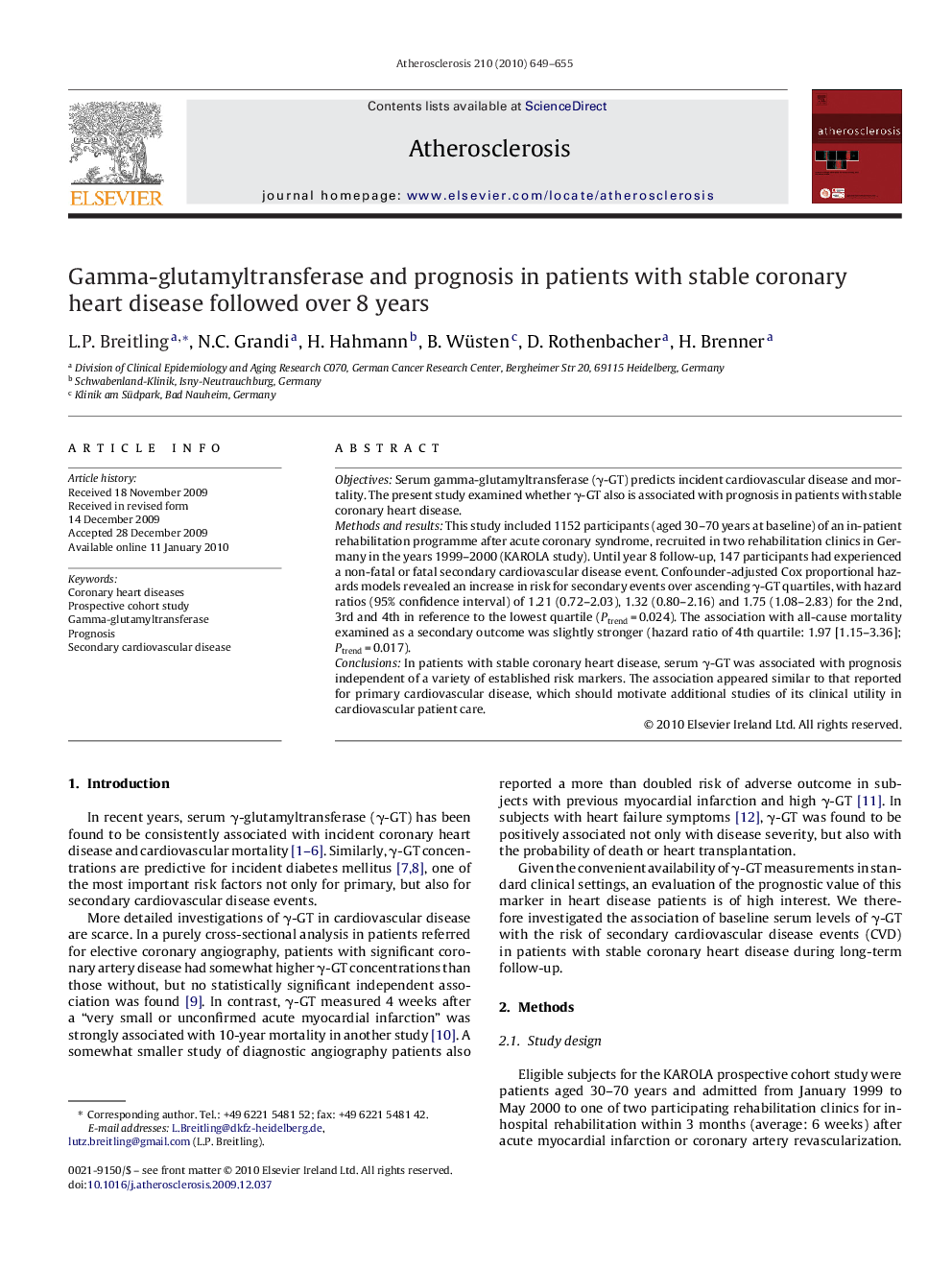| Article ID | Journal | Published Year | Pages | File Type |
|---|---|---|---|---|
| 5950741 | Atherosclerosis | 2010 | 7 Pages |
ObjectivesSerum gamma-glutamyltransferase (γ-GT) predicts incident cardiovascular disease and mortality. The present study examined whether γ-GT also is associated with prognosis in patients with stable coronary heart disease.Methods and resultsThis study included 1152 participants (aged 30-70 years at baseline) of an in-patient rehabilitation programme after acute coronary syndrome, recruited in two rehabilitation clinics in Germany in the years 1999-2000 (KAROLA study). Until year 8 follow-up, 147 participants had experienced a non-fatal or fatal secondary cardiovascular disease event. Confounder-adjusted Cox proportional hazards models revealed an increase in risk for secondary events over ascending γ-GT quartiles, with hazard ratios (95% confidence interval) of 1.21 (0.72-2.03), 1.32 (0.80-2.16) and 1.75 (1.08-2.83) for the 2nd, 3rd and 4th in reference to the lowest quartile (Ptrend = 0.024). The association with all-cause mortality examined as a secondary outcome was slightly stronger (hazard ratio of 4th quartile: 1.97 [1.15-3.36]; Ptrend = 0.017).ConclusionsIn patients with stable coronary heart disease, serum γ-GT was associated with prognosis independent of a variety of established risk markers. The association appeared similar to that reported for primary cardiovascular disease, which should motivate additional studies of its clinical utility in cardiovascular patient care.
